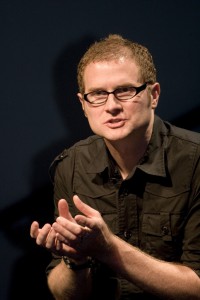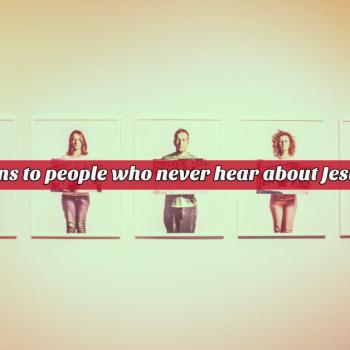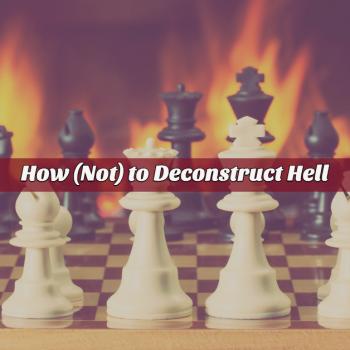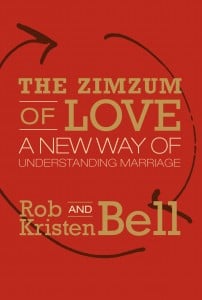As you know, I defended Rob as not a universalist from the beginning of the controversy. Based on his interview (still, having not read the book) here are my thoughts…
- Rob has a big vision of God’s love and grace. He is convinced that God is not primarily a God of wrath, but of love and restoration.
- He does believe in Hell, but certainly not eternal punishment. Rob seems to be quite influenced, as I predicted, by CS Lewis in the Great Divorce. Lewis has this interesting concept that hell is locked from the inside. People that want to experience hell, will get exactly that… in this life and the next.
- Where Rob did not help himself out was in the ambiguity about the question of if hell is real after this life. He was very articulate in describing the reality of hell in the present time… we see hell all around our yet to be restored world. I agree with his earthly / here-and-now point of view. I do think that he could have been a bit more direct in dealing with the afterlife issues that many of us want to hear about. In this way I am frustrated with his approach to some extent.
- That said, I think Rob does simultaneously present the fact that the Bible is a book of tension and ambiguity, which is his primary motivation (I assume) for not wanting to make strong declarative statements. He did in fact affirm that hell in the afterlife is for those who want to be there, but in a CS Lewis kind of fashion, also pointed out that the Gate of the New Jerusalem in Rev 21-22 is always open. In other words, perhaps those who do not submit to the Lordship of Jesus initially will have the chance to change their mind.
- On that point, freedom… complete and un-coereced freedom of humanity is at the core of Rob’s beliefs. If humanity if free in this life, it seems that they have a choice to make in this life… will I live in light of heaven or will I bring hell to earth. The continuation of this freedom is what happens in the life to come.
- Rob was speaking to a general audience and is trying to build bridges into the larger culture rather than to perpetuate the cycle of defining religious bounded set types of approaches to Christianity. Jesus and his good news is the center, not our dogmas and ability to sniff out “who’s in and who’s out.”
- Rob affirms the radical exlusivity and inclusivity of Christ and the good news. Again, he wants to live in the tension between these two rather than simply to lean towards the exclusive as many evangelicals have done.
- Finally, I think it is safe to say that Rob is NOT a universalist, but that he is hopeful that everyone will eventually choose to be gathered into the New Jerusalem. If I were to “label” him, which he hates and I personally am hesitant to do, I would label him a radical inclusivist.
What are your thoughts on the Rob Bell interview?
PS – My brief observations are not based on the book but on my personal impression of the interview. I will review the book asap.












